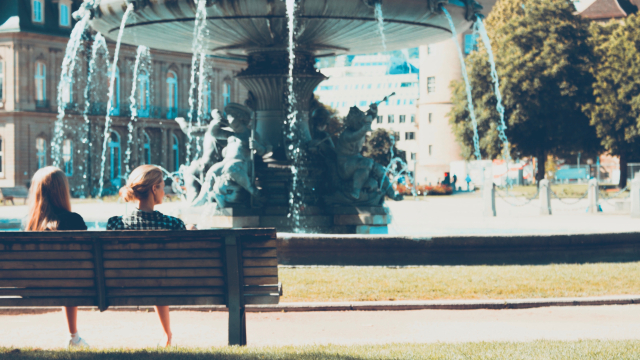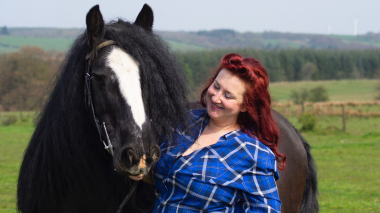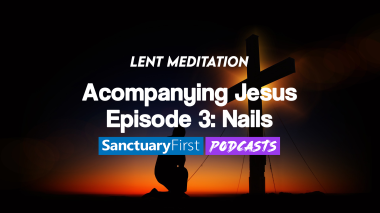Community matters

Listen to this daily worship
Philippians 4: 1-9 (NRSV)
1 Therefore, my brothers and sisters, whom I love and long for, my joy and crown, stand firm in the Lord in this way, my beloved.
2 I urge Euodia and I urge Syntyche to be of the same mind in the Lord. 3 Yes, and I ask you also, my loyal companion, help these women, for they have struggled beside me in the work of the gospel, together with Clement and the rest of my co-workers, whose names are in the book of life.
4 Rejoice in the Lord always; again I will say, Rejoice. 5 Let your gentleness be known to everyone. The Lord is near. 6 Do not worry about anything, but in everything by prayer and supplication with thanksgiving let your requests be made known to God. 7 And the peace of God, which surpasses all understanding, will guard your hearts and your minds in Christ Jesus.
8 Finally, beloved, whatever is true, whatever is honorable, whatever is just, whatever is pure, whatever is pleasing, whatever is commendable, if there is any excellence and if there is anything worthy of praise, think about these things. 9 Keep on doing the things that you have learned and received and heard and seen in me, and the God of peace will be with you.
These days we talk often, but quite loosely, about ‘community’. The word comes from the Latin communis meaning public spirit. Today it more often refers to groups living or working in the same place and sharing certain attitudes or interests. The Christian community at Philippi was a group brought together and shaped into a sense of ‘oneness’ by its love for Jesus Christ.
The trouble was the community characterised here by St Paul as, ‘my joy and crown’, was being undermined by an ongoing disagreement between two of their number. So highly did St Paul value unity, that he ‘called out’ the two women in his letter, which would have been read publicly!
In typical fashion, he encouraged the community to gentle, gracious behaviour, citing celebration, prayer and thanksgiving as antidotes to anxiety. But it’s the stunningly beautiful penultimate section that interests me most. ‘And now, my friends, all that is true, all that is noble, all that is just and pure, all that is lovable and attractive, whatever is excellent and admirable, fill your thoughts with these things’ (REB). It reminds me of Paul’s exhortation to the Roman Christians, ‘to be transformed by the renewing of your minds’ (Romans 12: 2). We know that what we think or believe, implies certain actions. If I believe this, I will do something differently than if I believe that…
There’s no end of things worthy of our attention and praise: the colours of late summer; the shimmer of a Scottish loch; children’s laughter as they pile out of school; poetry; forgiveness; owls calling to establish their territory; sunset. And so on, endlessly… Suppose Euodia and Syntyche had spent time walking in a garden, listening to music together, viewing art, birdwatching…? In the face of such beauty and rich inventiveness, how could they possibly persist in their animosity towards each other?
PRAYER:
Lord God, we live with such beauty, such richness, such colour. We pray to be so immersed in true and noble and lovely things, that we flee from anger and bitterness and all that would destroy fellowship. Amen.




 Add to Favourites
Add to Favourites








Login to comment.